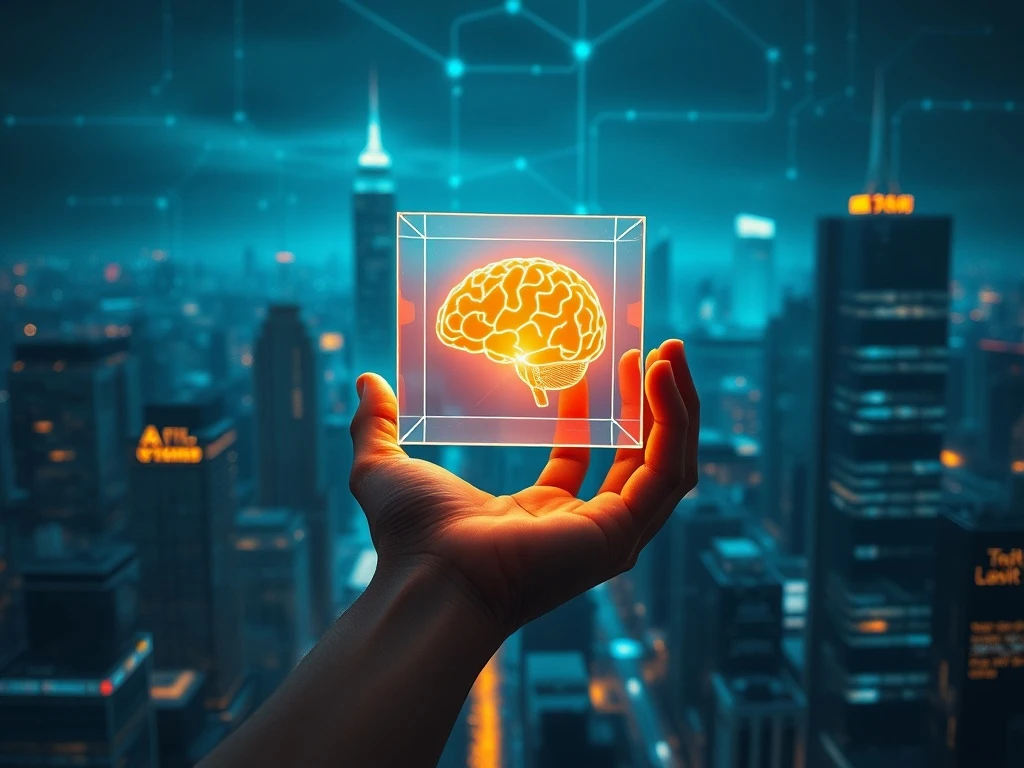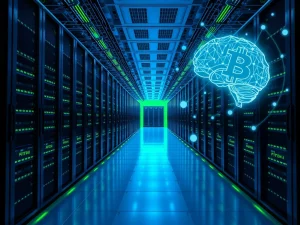AI Ownership: A Crucial Shift for the Future Economy

The landscape of work is changing rapidly. Many professionals are now facing an unprecedented challenge. Artificial intelligence (AI) is quickly transforming industries. This shift impacts white-collar jobs especially. For those interested in cryptocurrencies, this presents a unique opportunity. The future economy will belong to individuals who own their AI. They will direct AI agents, rather than merely renting access. This fundamental shift is crucial for navigating the evolving economic landscape. It also highlights the growing importance of blockchain technology.
The Accelerating Pace of AI Automation
AI is now performing tasks once considered human domain. This includes software writing and content generation. Financial modeling and data analysis are also impacted. Strategic advice is even being provided by AI systems. The traditional labor economy faces significant erosion. Policymakers, educators, and technologists may not fully grasp its speed. This current wave of automation differs greatly from past shifts. It is not slowly replacing factory workers. Instead, it rapidly absorbs white-collar roles. These roles once defined the middle class. Basic content creation, legal research, and academic analysis are already offloaded to AI. More sophisticated domains will likely see disruption within five years. These include strategic planning and relationship management.
Erosion of Traditional Labor and Future Economy Trends
The core assumption of trading time for money is dissolving. This breakdown is happening in real-time. We are witnessing the dismantling of an entire economic model. This model was based on labor as the primary value creator. Debates often focus on AI replacing jobs. However, a more relevant question emerges. Who will own the new infrastructure of value creation? If intelligence becomes a resource, ownership becomes paramount. Those who own and direct their AI agents will shape the next economy. They will not merely rent access to centralized models. This perspective is vital for understanding future economy trends. It moves beyond simple job displacement discussions.
Some commentators argue against this view. They believe AI requires central regulation for safety. Others dismiss crypto’s role due to perceived financial chaos. Concerns about the “end of labor” are sometimes called premature. Yet, the evidence points to a significant transformation. Traditional skills are losing value quickly in this undisputed AI era. What truly matters now is systems thinking. This involves the ability to orchestrate and own AI workflows. It means building personal AI agents. These agents can be trained on your unique knowledge. You can then direct them to perform tasks. The value they create should return to you. Competing with AI is no longer the goal. Instead, individuals must learn to conduct it. This requires infrastructure supporting both autonomy and ownership.
Blockchain Technology Enables AI Ownership
The evolving ownership economy offers a viable path forward. It is grounded in control over digital tools and data. Value flows are also controlled by the owner. Specifically, blockchain technology enables this new paradigm. It supports private model training. Decentralized compute resources become available. Tokenized incentives align participant interests. Wallet-based identity systems provide secure access. These elements are quietly falling into place. They form the building blocks of this new economy. The most important application of blockchain may not be payments. It may not even be custody. Instead, it could be enabling individuals to own intelligence itself. This intelligence will increasingly mediate all economic and creative activity.
Consider platforms where individuals deploy autonomous AI agents. These agents operate like freelancers. They negotiate deals and provide customer support. They can run research tasks or analyze financial trends. The human owner then earns a yield from their activity. This contrasts sharply with selling time on corporate-owned gig platforms. Users can deploy AI agents that work continuously for them. They reclaim their time for higher-order creative or relational work. As wallets evolve, they will support agent-based coordination. Token incentives will shift from staking capital. They will instead reward training and maintaining AI agents. This shift is already underway.
The Rise of Autonomous AI Agents and Decentralized Intelligence
The concept of autonomous AI agents is transformative. These agents can operate independently. They perform tasks based on predefined parameters. Their actions contribute directly to the owner’s economic well-being. This model promotes a new form of decentralized intelligence. It empowers individuals directly. No longer are users reliant on opaque, centralized models. Instead, they control their digital workforce. This ensures value accrues to the creator. It supports a more equitable distribution of wealth generated by AI. This represents a significant departure from current centralized AI models. Decentralized intelligence fosters innovation. It also promotes greater transparency and user control. It is a fundamental component of the emerging ownership economy.
Of course, this shift will introduce legal and regulatory challenges. Autonomous agents will begin to transact and negotiate. They will represent humans in digital markets. Questions about liability, authorship, and taxation will certainly persist. However, the direction is clear. Value will accrue to those who own the intelligence that performs the work. It will not accrue to those clinging to increasingly obsolete forms of labor. The choice is no longer about resisting or embracing AI. It is about owning your AI before it effectively owns you. This fundamental decision will shape individual prosperity. It will also determine the structure of the global economy. Syed Hussain, founder and CEO of SHIZA, emphasizes this critical point. This article provides general information. It is not intended as legal or investment advice. The views expressed are solely the author’s.








